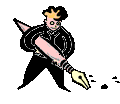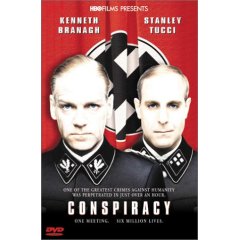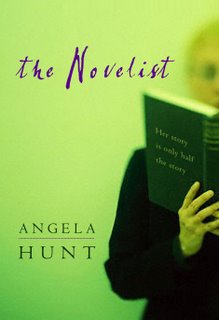As promised, the second scene of the WIP:My youngest, Bradley “Bugs” Graham, is playing in Mom’s flower bed when I pull into the driveway. I see him lift his head long enough to recognize the minivan, then he plops his fanny onto the front porch step, props his elbows on his blue-jeaned knees, and plants his round cheeks in his hands. Even at five, he knows that Little Boy Dejected pose is guaranteed to wring my heart.
Bugs doesn’t budge as I shut off the engine and step out of the van, though I do catch him shooting a curious glance in my direction. As I walk toward him, though, his gaze remains fixed on the brick step beneath his feet. Skeeter, our Jack Russell terrier, pops out from beneath a bush and scampers to greet me.
I pat the dog’s head, then look at my son. “Hey, kiddo.” My purse slides from my shoulder as I stoop to his level. “Got a hug for your mama?”
His blue eyes roll toward his coppery bangs, but he doesn’t move.
“Something wrong?”
He nods, so intent upon maintaining his hands-on-cheeks that his elbows rise from his knees with each up-and-down motion.
I sink to the step, too. For a moment we sit together, two melancholy souls staring at the yawning emptiness of the sky. A pair of birds flies by—ducks or something—and I wonder if they’ve mated for life.
“The redheads are in there.” Bugs’s voice startles me from my reverie.
“The redheads?”
“You know—those ladies. They’re all actin’ silly.”
His meaning eludes me for an instant, then I remember—my mother is a charter member of the Fairfax chapter of the Red Hat Society, a group of over-fifty ladies who take a vow to have fun in their golden years. I’ve never actually witnessed a meeting, but I’ve seen Mom gussied up in her red hat and purple feather boa.
And she thought my teen years were bizarre.
Skeeter rushes off to chase a squirrel as I slip my arm around my son’s narrow shoulders. “Are the red hats in the living room?”
He nods.
“Then we’ll go in through the kitchen, okay?”
Like cat burglars we sneak into the garage and creep down the narrow aisle between a wall of storage boxes and the side of my mother’s Buick. When we reach the door that leads to the kitchen, I turn and press my index finger to my lips. Bugs’s eyes are shining, and I’m so grateful for this evidence of happiness that my voice wavers: “Ready, Freddy?”
“Ready, Teddy.”
Exaggerating my movements, I open the door and slip into the kitchen in a crouched position. Bugs creeps behind me, tiptoeing in his sneakers, following in my footsteps. The dining room table, visible over the kitchen bar to our right, bears the remains of finger sandwiches, cookies, and congealed salads.
When I turn to check on Bugs, I see that my conspirator’s eyes have drifted toward the delectable detritus. “You hungry?”
He presses his lips together as his gaze lingers on a mound of sausage balls.
“Tell you what, kiddo—I’ll cover you if you want to sneak in there and grab a couple of goodies.”
I understand why he hesitates. Mother’s friends seem to think the good Lord dropped me and my kids at her house so she can enjoy unlimited time with her grandchildren and they can sneak hugs and kisses.
Bugs’s blue eyes focus on me. “I’ll be quick.”
“Okay, sport—make a run for it.”
He’s off with a squeak of his sneakers, but the laughing ladies in the room beyond don’t seem to hear this evidence of our trespassing. After a moment, my mother’s voice commands their attention: “Do you agree to handle growing more mature with humor and to take your silliness seriously?”
Someone giggles in answer.
“In the spirit of friendship and sisterhood, do you join your Red-Hatted sisters as we sassily go forth, bonded affectionately by the common thread of ‘been there, done that’ and with real enthusiasm for whatever comes next?”
A hushed voice: “I do.”
“Will you promise to learn to spit and not be afraid to sit on the sidewalk if you get tired?”
“I do.”
“Do you pledge to never, ever wear nylons with open-toed sandals?”
“I do.”
“Then place your right hand on your hat and repeat after me: I do light-heartedly swear on my hat to do my best to uphold the spirit of the Red Hat Society. This I pledge with a Red Hattitude . . .”
Alarmed that Bugs might have wandered into the initiation ceremony, I peek over the kitchen bar. My son’s pockets are bulging, presumably with sausage balls, and he’s heading for a plate of chocolate chip cookies.
“Bugs!” I whisper as loud as I dare. “You’d better hurry!”
He grabs a cookie, takes a bite, then stuffs the eclipsed remainder in his shirt pocket. He’s eyeing a bowl of red M&Ms when the relative calm of the living room erupts into a babble of voices.
I hiss a command to my offspring: “Move it, boy!”
Like the hero of every B movie ever made, Bugs reaches for one treasure too many. His fingers have just invaded the crystal candy bowl when the tide turns and the sea of Red Hatters swells toward the dining room. Mother’s voice rings above the bedlam—“Bugs Graham! You’ll spoil your appetite!”—then a crush of swirling compliments drowns out her reproach.
“What an adorable child!”
“Let the boy eat what he wants.”
“Oh, you sweet darling! Come over here and give me some sugar.”
I gesture to Bugs, but he’s caught in the riptide. One woman pinches his face while another bends and wraps her arms around him. My little eel squirms, though, so when the latter red hatter attempts to kiss his cheek, her lips smack his ear instead.
Too late, I realize that I am now exposed to Mother’s guests. I paste on a polite smile as the ladies approach with open arms and cries of welcome. “Jennifer, sweetheart, how are you doing?”
“Your little boy is such a delight. You also have a daughter, right?”
I extend my hand to Bugs, who has managed to thread his way through the milling Hatters. “No, ma’am, I have another son.”
“So sorry to hear about your trouble. But I know Queen Snippy loves having you here.”
I blink. “Who?”
“Her Royal Highness. Your mother.”
How could I forget? The Hatters bestow royal names on one another, and my mom rules this particular chapter with a red velvet glove.
“We’re enjoying the queen’s hospitality,” I say, addressing as many hatters as I can. “But if you all will excuse me, I think my little boy could use an appointment with the royal bathtub.”
I smile and nod and exchange polite greetings as I pull Bugs toward the hallway, and at one point I glimpse the queen smiling by the front door. Because she’s wearing her hostess face I doubt any of her guests know how hard these last few weeks have been . . . for all of us.
Mother loves me and my kids, but she’s not accustomed to having two young boys and a hyperactive terrier underfoot. And as grateful as I am for her support, I don’t want her to spend her slender retirement income on us. Neither do I want her to become a full-time babysitter.
“If you ladies will excuse me . . .” I tighten my grip on Bugs’s hand and pull him out of the kitchen.
When we enter the quiet hallway that leads to the bedrooms, he grins up at me. “We got busted!”
“And whose fault was that? You didn’t have to take some of everything on the table.” I sigh as some still-functioning part of my brain raises a mandatory maternal warning. “And you shouldn’t eat so many sweets before dinner. You’ll ruin your appetite.”
“No, I won’t.”
“Yes, you will. And you need a bath.”
“Can’t I wait until after dinner?”
I lean against the wall and close my eyes. It’d be so easy to give in--seems like all I do these
days is surrender.
I look down at my son. “Okay, but you have to wash your hands before you eat those snacks. And you head into the tub first thing after dinner without arguing. Okay?”
“’Kay.”
Bugs scampers away and turns into the first doorway on the right—mother’s sewing room, now serving as a bedroom for Bugs and Clay. Since quiet reigns in this hallway, I know Clay is either shooting hoops at the park or out riding his bike. At thirteen, he’s smart enough to leave as soon as he spots a red hat.
I grip my purse and trudge toward mother’s guest room. The flowered, lace-trimmed bedspread isn’t my taste, nor is the floral art on the walls. Mom said I could hang some of my pieces, but as long as I don’t unpack our furnishings, I can believe this situation is only temporary.
I sink to the edge of the bed and kick off my shoes, then pull my purse toward me. The realtor’s check lies in the fold of my wallet, so I pull it out and stare at the number in the box: forty thousand dollars.
I can’t help feeling like a contestant on a game show. If offered the choice of a new car, the down payment on a small townhouse, or a year in a nice apartment complex, which should I choose? All three are decent prizes, but none of them comes with a guarantee.
A cackle creeps down the hall and slides beneath my closed door; one of the Red Hatters is giggling her way into the hallway bathroom. I close my eyes against the sound, then topple sideways onto my pillow.
I need a relaxing soak in the tub, but I don’t dare commandeer the bathroom until the last Red Hatter has gone. I need a good soak, a good cry, and a good night’s sleep because tomorrow I have to get up, get dressed, and go out to look for a job. Again.
Skeeter and the boys will stay here with Mom. Though she keeps insisting that she doesn’t mind watching them this summer, I know better. Clay is at that awkward age and Bugs’s constant questions would try the patience of a plow horse. Mom loves my little guys, but she hasn’t been a full-time mother since I left home more than twenty years ago.
My thoughts whirl as my mind relaxes into drowsiness. By the time I’m fifty, my boys will be sixteen and twenty-four. Old enough to have survived whatever trauma their father and I have inflicted upon them.
Maybe by then I’ll be able to put on a red hat and laugh again.
Still with me? ~~Angie

 ungry Girl" newsletter--the Octodog Frankfurter Converter. Frankly (pun intended!), this one’s a little frightening. But we just had to include it. This wacky device slices ordinary hot dogs into eight-legged sea creatures. Cook ‘em, and their little legs swirl around the body like tentacles. Decorate them with condiments and eat 'em, or put on a hot dog variety show for the neighbors! We can't wait to turn guilt-free dogs into various and sundry sea critters. Yippeee! Purchase ‘em online here.
ungry Girl" newsletter--the Octodog Frankfurter Converter. Frankly (pun intended!), this one’s a little frightening. But we just had to include it. This wacky device slices ordinary hot dogs into eight-legged sea creatures. Cook ‘em, and their little legs swirl around the body like tentacles. Decorate them with condiments and eat 'em, or put on a hot dog variety show for the neighbors! We can't wait to turn guilt-free dogs into various and sundry sea critters. Yippeee! Purchase ‘em online here.





























